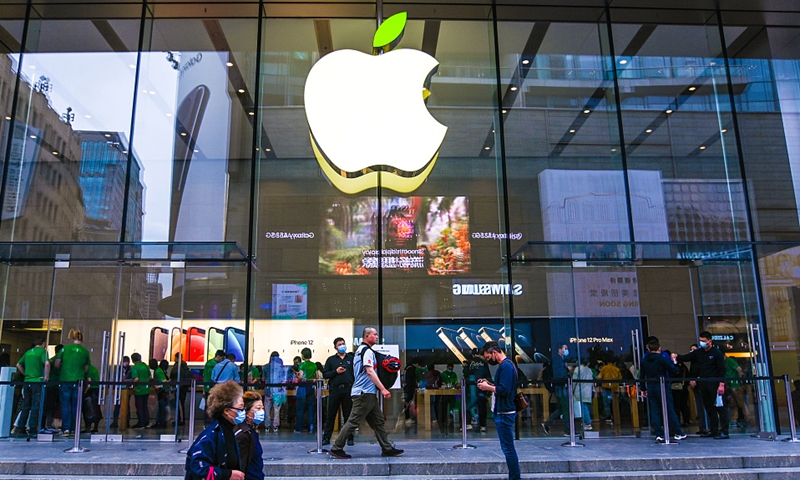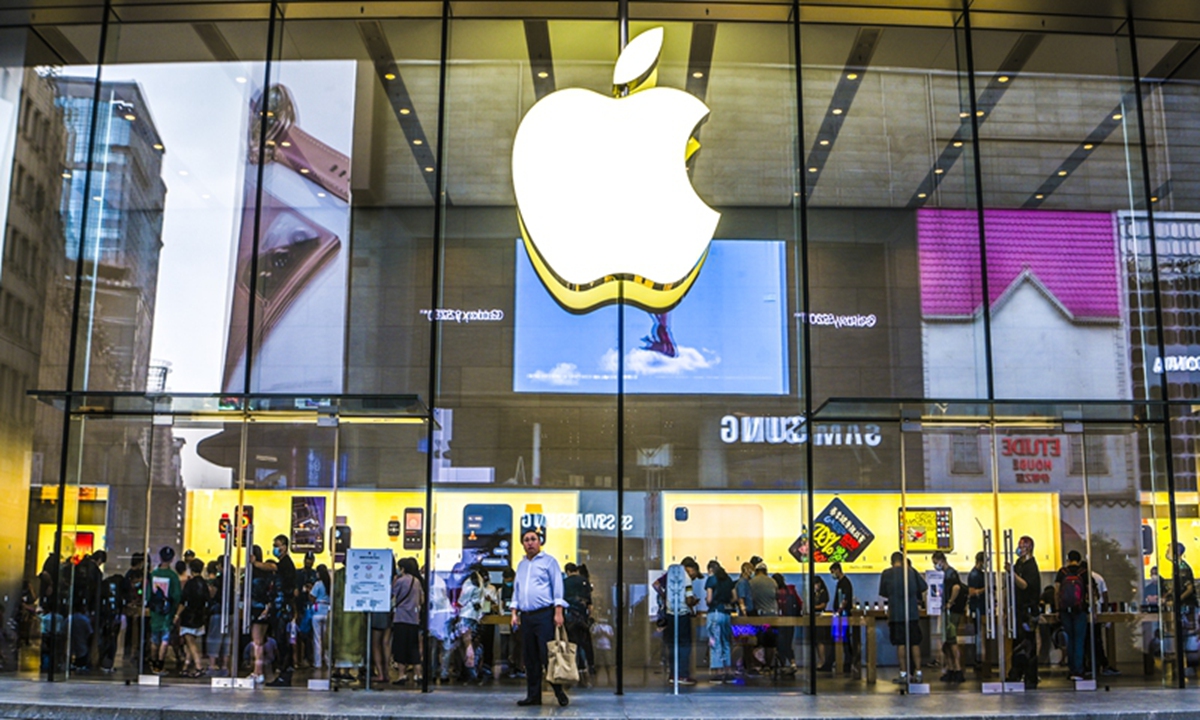Apple's impressive rebound highlights vast potential in China for global businesses

The photo taken on April 21, 2021 shows an Apple store in Shanghai. Photo: VCG
Data released on Tuesday indicates a surge in Apple Inc's shipments in China in April. While this is down to many factors, including Apple's sales promotions, the solid recovery in China's vast smartphone market was likely the most crucial contributor.
During the month, total smartphone shipments in China jumped by 28.8 percent year-on-year to more than 24.07 million, and shipments of 5G-powered smartphones skyrocketed 52.2 percent, accounting for 84.1 percent of the total shipments, according to the China Academy of Information and Communications Technology.
Another critical figure is the shipment of foreign brands, which reached 3.5 million, with Apple's iPhone accounting for the vast majority of foreign smartphone shipments, according to Bloomberg.
It shows the vast opportunities the Chinese market still offers to foreign businesses, despite the negative claims made by certain Western officials and media outlets recently.
Apple has featured in these smears, as the company has seen sales drop in recent months. Before stabilizing in March and the impressive rebound in April, iPhone shipments dropped by 39 percent year-on-year in January, and 33 percent in February. That prompted a series of negative media reports about Apple's woes in China. A report in the New York Times on May 2 claimed that Apple's struggles were "most worrisome in China, the world's second-largest smartphone market."
Many Western media reports attributed Apple's sales decline to what they described as an economic slowdown in China, as well as competition from rising Chinese smartphone brands such as Huawei Technologies. Some US politicians have also been putting pressure on Apple and other US businesses over their operations in China, as part of their push for a so-called economic decoupling from China.
However, as demonstrated by Apple's rebound in April, the Chinese market still holds vast potential and opportunities for foreign businesses, as long as they offer high-quality, competitive products and services for Chinese consumers. Politically motivated attempts to cut normal business ties not only run contrary to market principles and the interests of the businesses, but are also unlikely to succeed.
In Apple's case, despite some Western officials and media outlets' relentless pressure, the company has shown unwavering commitment to the Chinese market through a series of moves to expand its operations in China.
In March, Apple CEO Tim Cook visited China, during which Apple opened its largest retail store in the Chinese mainland in Shanghai to great fanfare. During an interview with the Chinese media, Cook didn't mince words when talking about the critical role of the Chinese market for Apple's supply chain.
"There's no supply chain in the world that's more critical to us than China," Cook told reporters, adding that Apple has been expanding and increasing its investment in China, to make its factories more modern.
Following the impressive figures for Apple's shipments in April, many Western media reports attributed the rebound to the company's recent sales promotions, most of which only started in recent weeks. As usual, these media reports failed to mention the size and importance of the Chinese market for Apple and many global businesses.


